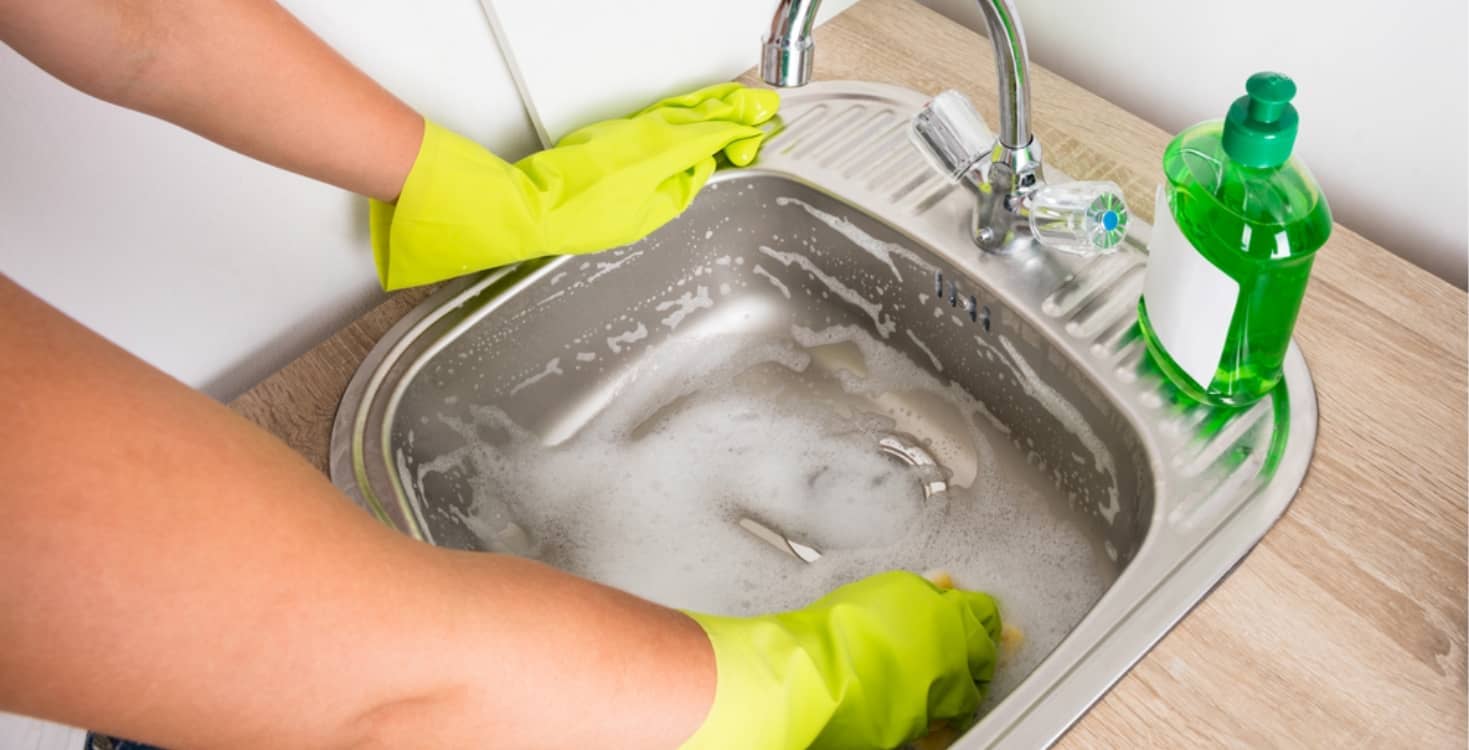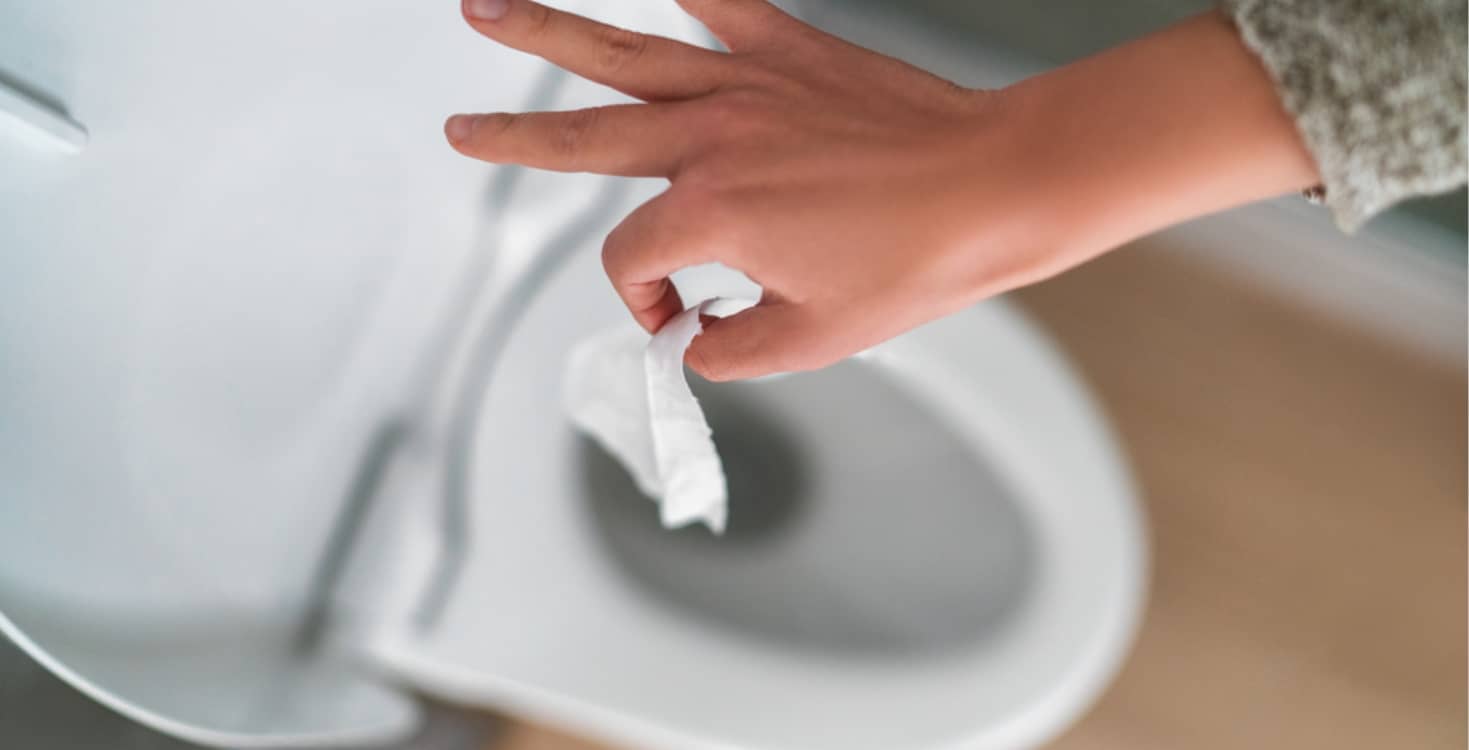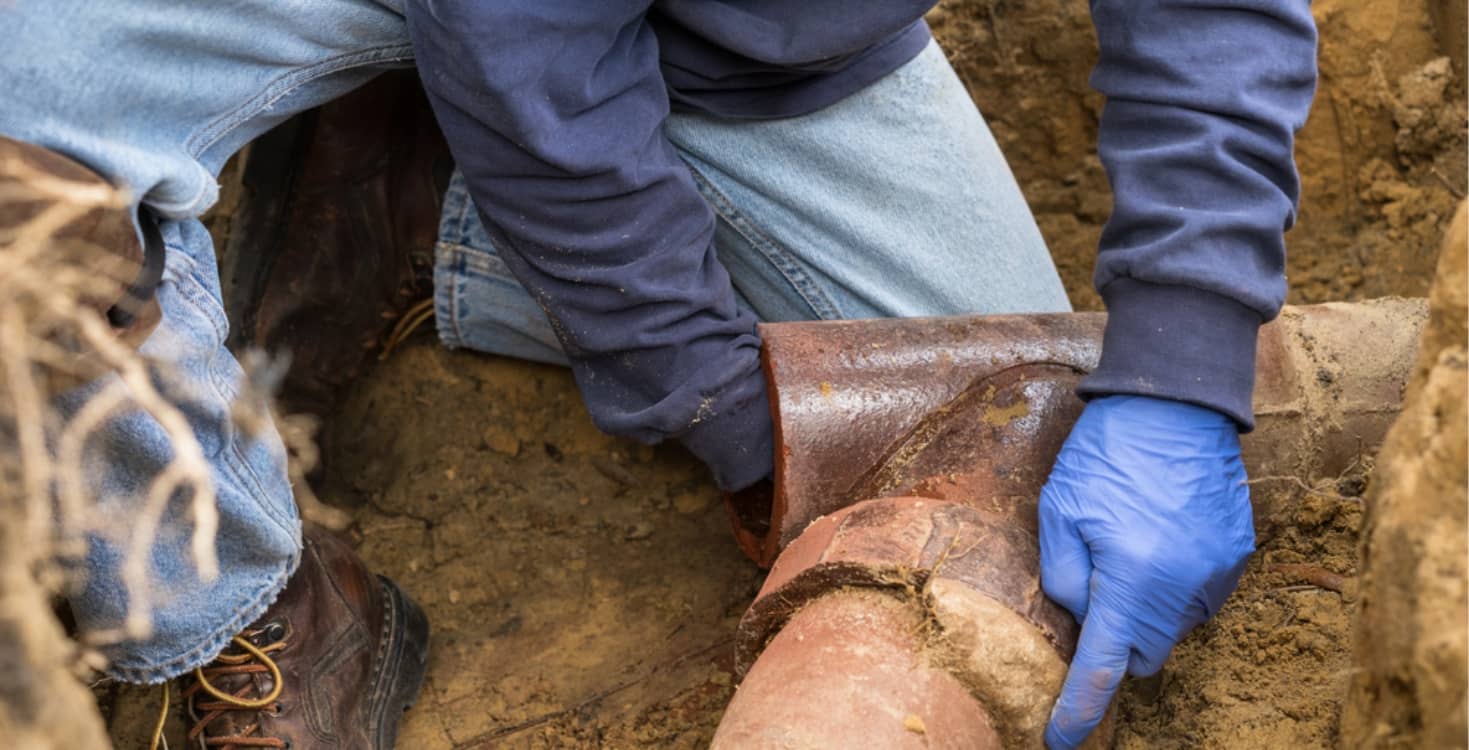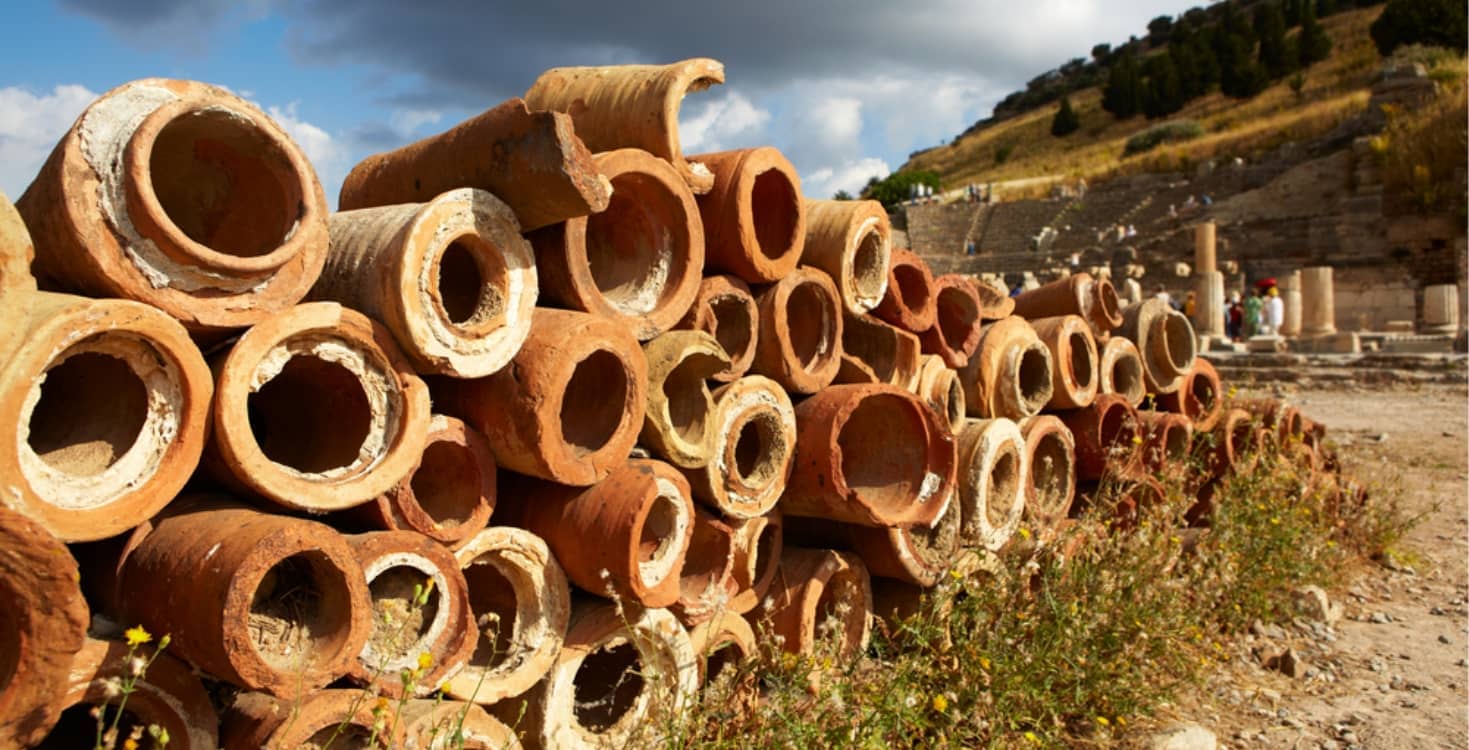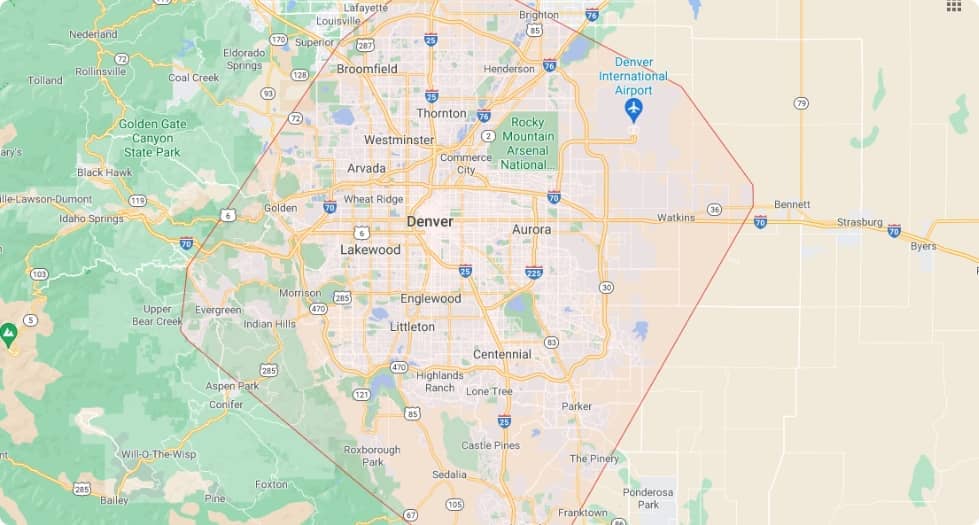Are your pipes clogged? Or maybe, your faucets are no longer working?
When most people think of clogs and other home plumbing problems, they might imagine a troublesome sink or toilet. While clogs such as these can be a problem, it’s usually fairly easy to solve these. Just about everyone has to deal with a clogged sink or drain once in a while, and a plunger or drain cleaning solution is usually enough to fix the problem. The best way to find out is with a Sewer Scope to identify the exact problem so our experts can fix it!

What You Can Do to Keep Your Sewer from Clogging
Plumbing problems can be much more serious than a simple stopped up sink, especially in older homes. In the worst cases, a home’s entire sewer system can become backed up, a problem that often requires the services of a professional plumber. Fortunately, there are things you can do to maintain your home’s pipes and keep your sewer system from clogging.
10 Tips on How to Keep Sewer Lines Clean
-
Use Enzyme Cleaners on Your Drains Monthly
The simplest thing you can do to keep your drains clear is to use a drain cleaner once a month. Being careful about what you throw down your drains is the first step. Grease, oil, and fat shouldn’t be put down the sink since they can harden and clog your pipes. Instead, discard these materials in the garbage with a sealed container. Additionally, refrain from flushing anything else down the toilet, such as paper towels, baby wipes, or feminine hygiene products. If you are suffering from a build up or a clog then a chemical solution may be the next best step for you. There are quite a few different cleaners available, but it is recommended that you use an enzyme cleaner instead of a chemical-based cleaner. Enzyme cleaners are better for your pipes, your health and the environment overall than the harsh chemicals that are frequently used in commercial cleaners.
-
Keep Trees, Bushes, and Other Plants Away from the Sewer Line
A common cause for clogged sewers comes from trees that are planted too close to the sewer line. Not only can the close proximity of these trees make maintenance difficult, but their roots can grow into the pipes, clogging them and even destroying them if the problem goes unchecked. Tree roots are one of the most frequent causes of obstructed pipes. Infiltration of tree roots into sewer systems can result in jams and backups. Avoid growing trees or huge plants close to your sewer line to avoid this. Additionally, if you notice sewage backups or slow-moving drains, contact a licensed plumber to examine your pipes and remove any tree roots.
-
Avoid Flushing Wipes and Other Hygiene Products Down the Toilet
The only thing that should ever be flushed down the toilet aside from human waste is toilet paper. Sanitary napkins and other hygiene products can clog pipes and lead to more serious plumbing problems. Additionally, refrain from flushing anything else down the toilet, such as paper towels, baby wipes, or feminine hygiene products. Use common sense to avoid preventable blockages like this.
-
Be Cautious what you put Down your Drains
Being careful about what you throw down your drains is the first obvious step to avoid unnecessary blockages. Grease, oil, and fat shouldn’t be put down the sink since they can harden and clog your pipes. Instead, discard these materials in the garbage with a sealed container.
-
Use Drain Screen Protectors
So if you can’t always be sure what is going down your drains, especially if you have a house full of kids, then consider purchasing drain screens. Simply put, use drain screens! By covering your sink, shower, and bathtub drains with a drain screen, you can avoid clogs caused by hair, soap scum, and other debris. To prevent accumulation, make sure to routinely wipe the screens.
-
Sewer Line Inspection
Regularly inspect your sewer line to look for any signs of damage or obstructions because sewer line issues can result in significant clogs and backups. Your sewer line can be inspected with a camera by a qualified plumber to spot any potential problems early on.
-
Be mindful of Your Garbage disposal
It’s not all toilets, sinks and drains that can lead to issues. Garbage disposals are a potential problem maker too! Keep in mind that not everything should go down the garbage disposal, even if they might be useful for getting rid of food scraps. Rice, celery, potato peels, and other fibrous or starchy foods shouldn’t be dumped down the garbage disposal because they can tangle up and clog the machine. Additionally, to help flush any debris down the drain, run cold water for at least 15 seconds both before and after using your disposal.
 FREE Estimate on Drain Cleaning & Sewer Repair
FREE Estimate on Drain Cleaning & Sewer Repair -
Replace Old Clay Pipes
Pipes tend to corrode over several years, so if you live in an older home with clay or lead pipes, consider having them replaced. The older your pipes get, the more likely they’ll be to become susceptible to damage, cracks, warping and blockages. Replacing them is key to getting more longevity out of your drainage system. This is much easier before there is a serious clog.
-
Perform a Maintenance Rooter Cleaning Once a Year
Regular cleaning once a month can be great but you should also consider a deep cleanse at least once a year. An annual rooter cleaning can help keep your sewer line clear of debris and anything else that could cause a serious clog. Depending on how old your pipes are or how many clogs you have had in the past, you may need to perform these rooter cleanings more often, but most homes will be fine with one cleaning a year. Use your own judgement or consult a professional for the best advice.
-
Have your Water Pressure Checked
Another factor in avoiding clogged pipes is water pressure. Low water pressure can make drains move slowly, which can encourage the accumulation of debris and jams. Keep an eye on your water pressure and take fast action if there are any problems. A clogged faucet aerator, which is readily cleaned by unscrewing the aerator and removing any debris, may be the cause of a drop in water pressure.
DIY vs. Professional Solutions for Sewer Line Cleanouts
Knowing the difference between DIY and professional solutions can save you time, money, and stress. Here’s a quick guide to help you decide which route to take when tackling sewer line and drain cleaning.
DIY Solutions
For minor clogs and maintenance, here are some effective DIY options to keep sewer lines clean:
-
Baking Soda and Vinegar: Mixing these common ingredients and pouring them down the drain can help dissolve small clogs. Follow up with hot water to clear the drain line.
-
Hot Water Flushes: Regularly flushing your drains with hot water can prevent grease and soap from solidifying in your kitchen drain.
-
Drain Screens: Use screens to catch hair, food waste, and other debris before they clog up your pipes.
-
Limit Non-Flushable Items: Only flush toilet paper, not wipes, coffee grounds, or hygiene products. These can clog both sewer and septic systems.
When to Go Pro
Sometimes, a plumbing problem goes beyond what DIY efforts can handle. Here’s when you should consider bringing in a professional:
-
Tree Root Intrusions: Roots can grow into the sewer pipe, causing serious blockages. A plumber can perform a sewer line cleanout and potentially replace damaged sections.
-
Advanced Drain Cleaning: While baking soda and vinegar are handy for light clogs, more severe buildup might need a mechanical auger or hydro jetting from a professional.
-
Septic System Maintenance: If you have a septic system, routine checkups and occasional pumping are key to preventing costly repairs.
Knowing when to take the DIY route and when to call a professional can extend the life of the sewer pipe and save you from bigger expenses down the road.
Common Mistakes to Avoid to Keep Sewer Pipes Clear
Even with good intentions, some habits can actually lead to plumbing headaches. Here are a few common mistakes to avoid to help keep your sewer line clean and your plumbing system running smoothly:
-
Pouring Grease Down the Drain: Grease, fat, and oils solidify as they cool, leading to buildup in your kitchen drain. Instead, let them cool in a container and throw them away in the garbage.
-
Flushing Non-Flushables: Only toilet paper should go down the toilet. Items like wipes, feminine products, and cotton balls don’t dissolve and can easily clog your sewer line.
-
Neglecting Regular Cleanouts: Without routine drain cleaning, small clogs can turn into major blockages in your main sewer line. Consider scheduling professional cleaning annually to keep sewer pipes clear.
-
Overloading Your Garbage Disposal: Food waste, especially coffee grounds and fibrous items like celery, can clog up the disposal and cause a backup in the drain line. Use the disposal sparingly, and avoid dumping starchy or fibrous foods.
-
Skipping Hot Water Flushes: A quick hot water flush once a week can prevent buildup in your sewer line, especially in the kitchen drain where grease and soap are common culprits.
By avoiding these common mistakes and following good practices, you can keep your sewer line clean, avoid unnecessary clogs, and reduce the need for costly repairs to your plumbing system. Remember, a little maintenance goes a long way in keeping your pipes flowing freely!
When to Call a Professional for Help
Sometimes, no matter how diligent you are, sewer line issues need a professional touch. While regular maintenance can do wonders for keeping your plumbing system in check, certain signs signal that it’s time to call in the pros. Here’s when you should consider reaching out:
-
Persistent Sewer Line Clogs: If your main sewer line is clogging repeatedly despite regular drain cleaning, you likely have a deeper issue that only a professional can diagnose and fix.
-
Sewer Odors Indoors: Strange, sewer-like smells inside your home could mean a backup or a break in your sewer pipes. Call a professional to investigate and identify the source.
-
Gurgling Noises or Multiple Clogged Drains: Hearing odd noises from your drains or seeing slow-moving water in multiple drains? These are telltale signs of a more serious sewer line clog.
-
Flooding or Sewage Backup: If sewage backs up in your home, it’s a red flag for a major blockage in your sewer line or drain line. A sewer line cleanout is essential to restore safe function to your plumbing system.
While some clogs can be resolved with a simple baking soda and vinegar mix or plunging, these situations require trained eyes and specialized equipment. Call Simply Sewers at (720) 434-4106 for trusted, professional sewer and drain solutions in Denver and nearby areas – we’re here 24/7 to help!
Overall, preventing clogged pipes is being cautious about what you put down your drains, keeping an eye on your water pressure, routinely cleaning your drains, and taking care of any problems as soon as they arise. By adhering to these expert recommendations, you can keep your plumbing system operating efficiently while avoiding the annoyance and the expense of clogged pipes.
Drain Cleaning and Clogged Drain Service
Simply Sewers provides fast, honest, and affordable drain cleaning and sewer repairs. You can get free estimates and face time estimates where possible. Many of our customers save hundreds and even thousands of dollars on sewer line replacements compared to larger companies.
Our services include
- Free Estimates
- Face Time Consultations
- Competitive Prices
- Drain Cleaning
- Sewer Repairs and Replacements
- Septic Tank Repairs and Replacements
Fast quality service is our priority. We are a locally owned and operated small business that wants our customers to get the best deal every time. We are dedicated to providing a top quality service at a reasonable price for all our customers.


